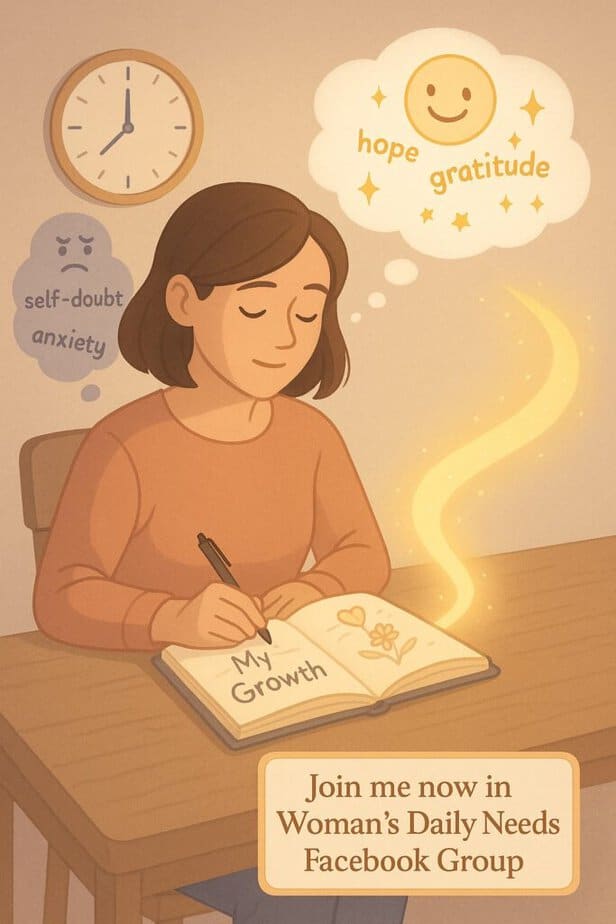Unveiling The Art Of Nurturing Self-Growth Through Mastery Of Thought

As we proceed into 2025, the conversation around personal growth has matured. Unveiling The Art Of Nurturing Self-Growth Through Mastery Of Thought reflects a growing global shift away from superficial “hacks” and quick fixes. Today, more people are embracing meaningful, lasting change grounded in how we think, feel, and act. With rising awareness of mental health, emotional intelligence, and the power of neuroplasticity, it’s becoming clear that authentic self-growth starts from within—by reshaping thought patterns and committing to intentional daily habits.
Thoughts are not just mental chatter—they’re creative forces. Habits aren’t just routines—they’re reflections of what we repeatedly believe. When we align both, we unlock powerful shifts in how we live, relate, and evolve. This article is your 2025-ready guide to nurturing that transformation through practical, neuroscience-backed, emotionally intelligent self-work.

1. The Cognitive Revolution: Understanding the Science Behind Thought Patterns
In recent years, neuroscience has confirmed what spiritual and philosophical traditions have said for centuries: our thoughts create our reality. The human brain is highly plastic, meaning it can rewire itself throughout life. This means even deeply rooted limiting beliefs or negative self-talk can be changed with the right tools and repetition.
Common 2025 Insight:
Apps like NeuroFlow and ReWiRE now help people visualize thought loops and track cognitive distortions in real-time, showing us how often we default to stress-based, fearful, or sabotaging thoughts.
Here’s what’s crucial: when you identify a pattern like “I’m not good enough” or “Nothing ever works out,” you’re not just noticing a thought—you’re meeting the edge of your current identity. And that’s exactly where change begins.
Action Step:
Use cognitive behavioral therapy (CBT) principles: for every negative thought, write down the evidence for and against it. Replace it with a balanced truth like:
“I may not be perfect, but I’m growing every day—and that’s enough.”
2. Habits as the Building Blocks of Identity
In 2025, the research is clear: your habits are a reflection of your identity. James Clear’s “Atomic Habits” revolutionized how we approach behavior change by showing that it’s not about willpower—it’s about system design. You don’t rise to the level of your intentions; you fall to the level of your routines.
Why this matters now:
Burnout rates are higher than ever, and people are overwhelmed by decision fatigue. That’s why simplifying your environment and automating positive habits is more crucial than ever.
Tiny, repeated actions matter more than massive shifts. Drinking more water, spending 5 minutes in stillness, writing a gratitude entry—these seem insignificant until they’re practiced consistently.
Action Step:
Use the “1% rule”—aim for just 1% improvement each day. Install habits that support the future version of you. Ask:
“What would the best version of me do today—even if just for 5 minutes?”

3. The New Self-Awareness: Mindfulness, AI, and Conscious Reflection
Self-awareness is evolving in 2025. It’s not just about knowing your triggers; it’s about tracking your patterns, using tools, and making adjustments before things spiral.
Today, we have everything from meditation apps with emotional tone detection to journaling platforms powered by GPT-based prompts. But technology is only a tool—the real power lies in your willingness to be honest with yourself.
Being self-aware means noticing when you’re stuck in loops: comparing yourself to others, reacting emotionally, or giving in to procrastination. From there, you make conscious shifts.
Remember: You can’t change what you’re not aware of.
Action Step:
Practice intentional self-check-ins at least twice a day. Ask:
“What emotion am I feeling right now, and what is this telling me about my needs?”
Use reflective journaling to spot patterns and celebrate growth, not just to vent.
4. Upgrading Inner Dialogue: The Language of Self-Leadership
The words you use internally are powerful. In 2025, we’re finally understanding that self-talk is a form of self-leadership. Harsh inner criticism erodes confidence over time, while compassionate accountability builds trust with yourself.
It’s not about sugar-coating reality. It’s about speaking to yourself like someone you deeply care about. This emotional intelligence skill is crucial for managing stress, relationships, and growth.
The most successful leaders, parents, and creators speak to themselves with kindness and clarity. They challenge themselves—yes—but without tearing themselves down.
Action Step:
Shift your self-talk by using “name distancing.”
Instead of “I messed up again,” try:
“Makhsud (insert your name), you’re learning. That was a misstep, but you’re handling it better than before.”
This technique, backed by recent psychology studies, activates a more objective, supportive part of your brain.

5. The 2025 Growth Model: Consistency Over Intensity
In a world obsessed with hustle and extremes, the real masters of growth understand this truth: what you do consistently matters more than what you do occasionally.
2025 has also brought a much-needed shift: from glorifying burnout to celebrating sustainable progress. Wellness isn’t about 30-day sprints; it’s about showing up on the hard days and taking small, aligned steps.
The world is still uncertain, but your inner practices can remain steady.
Action Step:
Create a “non-negotiable” list of 3 daily micro-habits that support your growth.
Example:
- 3 minutes of stillness or breathwork
- One glass of water in the morning
- A kind sentence to yourself in the mirror
Track these in a simple app or notebook. In 30 days, you’ll be amazed at how much stronger and grounded you feel.
Conclusion: Be the Artist of Your Self-Transformation
The truth in 2025 is clear: you’re not something broken that needs fixing—you’re a masterpiece unfolding in your own time. Growth isn’t a competition; it’s a rhythm unique to you. Unveiling The Art Of Nurturing Self-Growth Through Mastery Of Thought means recognizing that by aligning your mindset and habits, you become the conscious creator of who you’re becoming, one intentional step at a time.
You don’t need to wait for a new job, a better relationship, or external validation. Your transformation begins where you are, with what you have, right now. Thought by thought. Step by step.
And remember, the most impactful breakthroughs often come from the smallest shifts.
So ask yourself:
🧠 What thought am I choosing today?
🔁 What habit am I reinforcing?
🧭 Who am I becoming—on purpose?
You are already on the path. Now, walk it with intention.
“If something sparked your curiosity or you’d like personal guidance on your journey, drop your thoughts in the comments below or contact me directly at kiersti@womansdailyneeds.com. I’m here to support your growth—let’s keep the conversation going.”
Related: Utilize Your Thoughts’ Power- Unlock Your Potential
Harnessing The Power Of Thoughts And Visualization To Combat Negativity
20 Techniques For Developing Positive Thoughts- It’s Uplifting
How To Take Control Of Your Thoughts ’ Possible

Join me now in the Woman’s Daily Needs Facebook Group
Kiersti writes on self-love and personal development professionally. Over the past ten or so years, she has studied self-love and personal growth. Visit https://womansdailyneeds.com/ to learn more about what she does, and like her on Facebook at https://facebook.com/womansdailyneeds to keep up with her.

9 Responses
What a beautifully crafted guide to self-growth through mastering our thoughts!
I love how you highlighted the role of neuroscience and neuroplasticity in reshaping limiting beliefs—it really reframes growth as an intentional, empowering process. The mention of tools like NeuroFlow and ReWiRE makes it feel so practical and 2025-ready. I especially appreciate the reminder that tiny, daily habits are reflections of our identity—so true!
Thank you for weaving together mindset, science, and action in such a warm and inspiring way.
Thank you so much for this thoughtful response! I’m really glad the blend of science, mindset, and daily action resonated with you. Neuroplasticity truly is such an empowering concept—it shows us that growth isn’t just possible, it’s intentional. And yes, those small daily habits? They quietly shape who we’re becoming. I appreciate you taking the time to share your thoughts—it means a lot!
I’m really enjoying your articles, Kiersti—this one especially lit a fire in me.
I absolutely believe that our thoughts shape our reality, and I’ve been consciously working on rewiring my own mindset for about 20 years now. With neuroplasticity becoming more widely understood, I feel a renewed sense of hope that lasting change is possible—no matter how ingrained those old patterns seem.
I hadn’t heard of the apps you mentioned, but I’m excited to check them out. I’ve been using NeuroGym off and on for years to help retrain my brain, though I’ll admit I haven’t always been consistent. Your article was the perfect nudge I needed to recommit to those daily practices—starting now.
Question for you: When you notice yourself slipping out of consistency, what’s your favorite way to gently pull yourself back without falling into self-judgment? I’d love to hear how you navigate that part of the journey.
Thank you again for sharing so much depth and wisdom.
Warmly,
JarieLyn
Thank you so much—that truly means a lot to me! I love that you’ve been doing the mindset work for so long. Neuroplasticity really does give us so much hope, doesn’t it?
As for slipping out of consistency—yes, it happens! When I notice myself drifting, I try not to beat myself up. Instead, I treat it like a gentle reset. I’ll ask myself, “What do I need right now?” Sometimes it’s rest, sometimes it’s inspiration. I also remind myself that progress isn’t lost—pausing is part of the process. Just one small action—like revisiting a favorite app or journaling for five minutes—can help me reconnect.
We’re all on this journey, and every step counts. ????
This article felt like a breath of fresh air in a world filled with “do more, be more” noise. I loved the reminder that our thoughts shape our identity and that even a 1% daily shift can change everything. The blend of neuroscience and mindfulness was especially powerful. How do you personally reset when you catch yourself stuck in an old thought loop?
Thank you so much for your kind words—I’m really glad the message resonated with you! You’re absolutely right, that constant pressure to “do more, be more” can be exhausting, and it’s easy to fall back into old thought patterns when we’re overwhelmed.
Personally, when I catch myself stuck in a negative loop, the first thing I do is pause—literally just stop and breathe. Then I try to name the thought without judgment, almost like an outside observer. From there, I ask myself: “Is this true? Is this helpful?” That alone can start to break the cycle.
Sometimes, I’ll also write it out or go for a walk to move the energy. Other times, I’ll repeat a grounding affirmation like, “I am safe to grow at my own pace.” It’s those small resets that slowly rewire the way I respond.
How about you? Do you have a go-to reset ritual when those loops show up?
There’s something quietly revolutionary about framing self-growth as ‘mastery of thought’ rather than just another checklist of productivity hacks. It shifts the focus from doing more to thinking differently—which, ironically, feels harder but also more sustainable in the long run.
I’ve noticed how my own growth stalls when I treat personal development like a to-do list (meditate! journal! hydrate!) instead of examining the beliefs driving those actions. That moment you described—where you catch yourself in a thought loop and pause—feels like the real work. But man, is it exhausting at first.
What surprised me most was how physical this process can be. Changing my thoughts isn’t just mental; it’s like rewiring my nervous system. The other day, I literally had to sit down when I realized how often I default to ‘I’m not ready yet’ before trying something new.
Would love to hear how to navigate this: What’s one thought pattern you’ve learned to ‘unmaster’ that changed everything else? (For me, it was swapping ‘Why does this always happen to me?’ to ‘What’s this trying to show me?’—small shift, seismic results.)
Absolutely—it’s incredible how deep this work goes. One habit I had to change was my pattern of negative thinking. It used to run my life without me even realizing it. I’d default to worst-case scenarios, self-doubt, or “I’m not enough” on autopilot.
Letting go of those patterns didn’t happen overnight, but learning to pause, question, and replace those thoughts with something more empowering changed everything. Not in a fake-positive way, but in a way that gave me back control.
I actually wrote more about this in my How to Change Your Thoughts article—it’s a process, but it’s possible. That shift alone helped me feel safer in my body, clearer in my choices, and more grounded in who I am.
Thanks for opening up this space—these are the conversations that make growth feel real. ????????
Really resonates with me, finally realizing lasting growth is all about mindset and daily habits. No quick fixes here, just real change. It’s inspiring to see more focus on emotional intelligence and neuroplasticity. Authentic growth truly starts from within and that’s the journey I want to embrace. I would like to share this article with my family on social media.